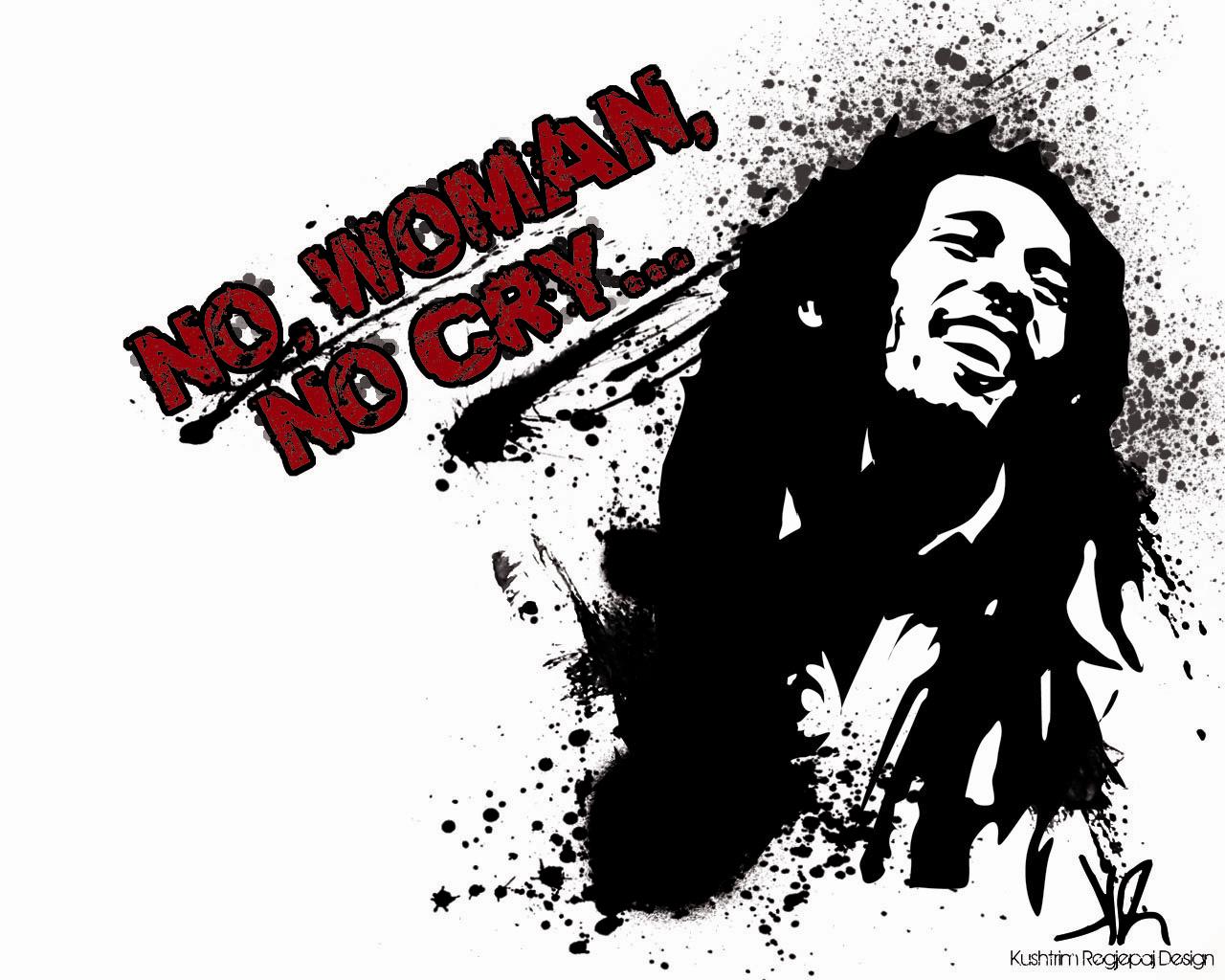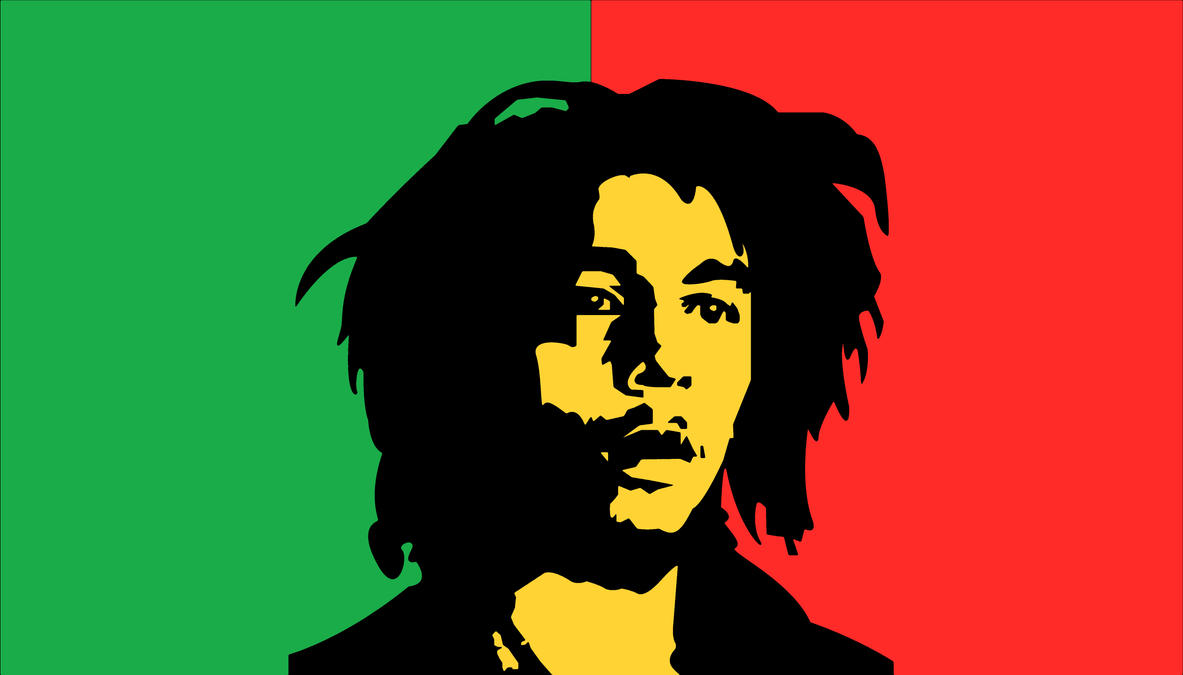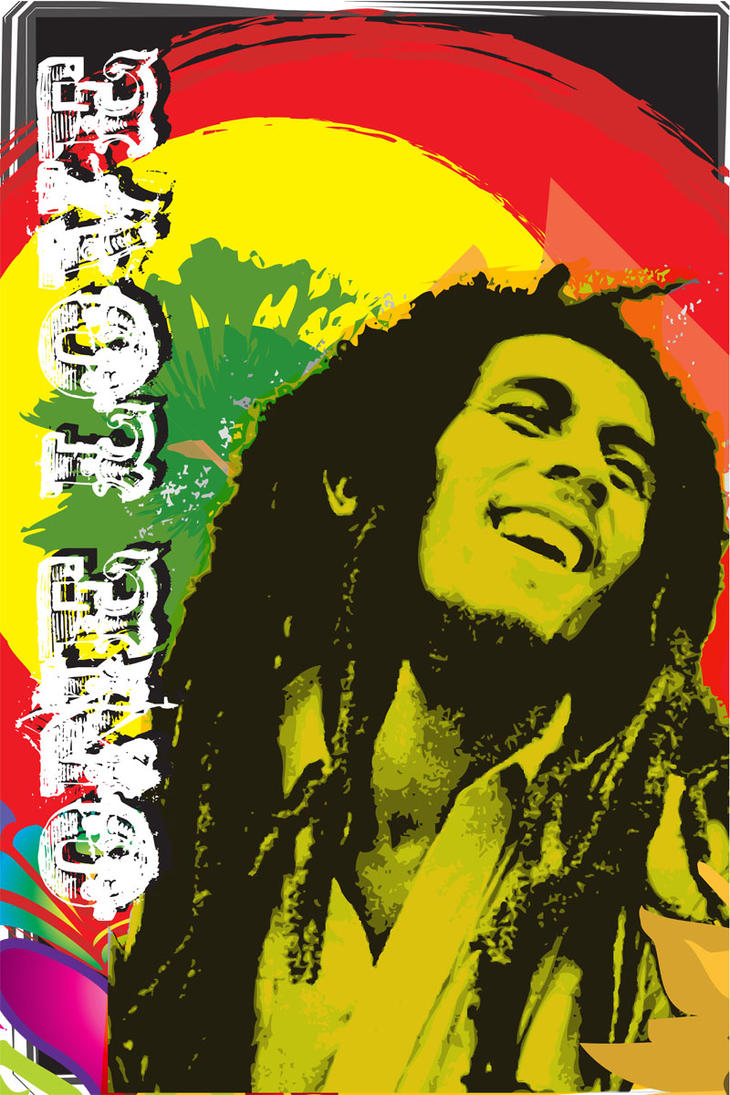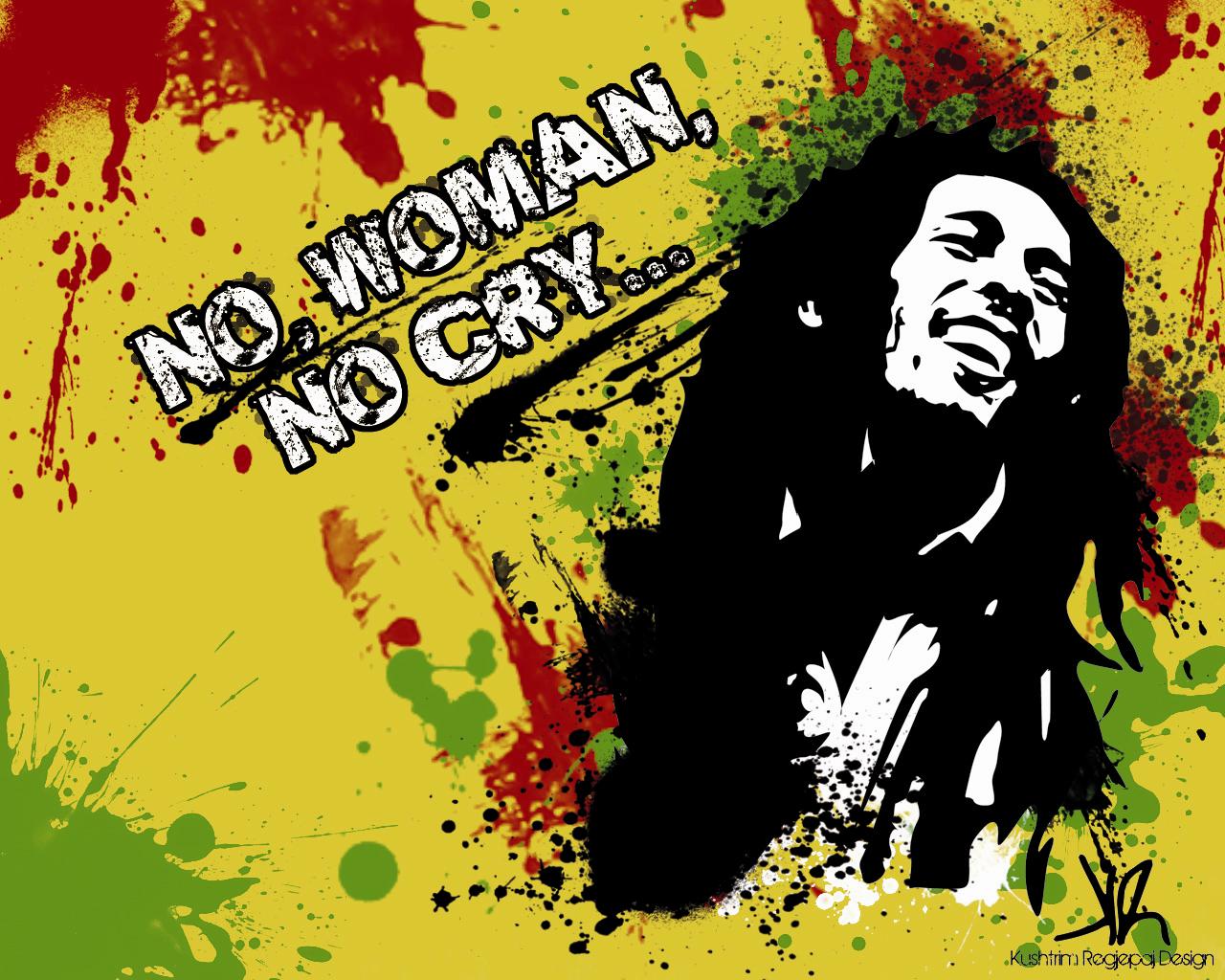Source(google.com.pk)
Bob Marley One Love Wallpaper Biography
Bob Marley was a hero figure, in the classic mythological sense. His departure from this planet came at a point when his vision of One World, One Love -- inspired by his belief in Rastafari -- was beginning to be heard and felt. The last Bob Marley and the Wailers tour in 1980 attracted the largest audiences at that time for any musical act in Europe.
Bob Marley biography is about a reggae icon who changed Jamaican music forever!
Thirty years after his death, his songs still resonate with the common man. Unlike other artists who come, go, and is forgotten, Bob Marley is never forgotten.
He was born to a white father and a black mother on February 6, 1945 and as Robert Nesta Marley
.
As a youth growing up, he faced racial prejudice, because of his color, and questions his identity.
At the age of 14, he launched his music career along with Bunny Wailer, and Peter Tosh when they met Joe Higgs, a local Rastafarian singer.
In 1962, the group recorded their first two singles: Judge Not and One Cup of Coffee, with local producer Leslie Kong...but these recordings got very little attention.
In 1963, the group joined up with Junior Braithwaite, Beverley Kelso, and Cherry Smith and formed a ska and rocksteady group called The Teenagers.
Later they changed their name from The Wailing Rudeboy, to The Wailing Wailers.
Shortly thereafter, Coxsone Dodd discovered them, and they finally called themselves The Wailers.
In 1966, Braithwaite, Kelso, and Smith left The group. Bob, Bunny, and Peter became the core.
Bob marries Rita Anderson, moved to the US for a while, then returned to Jamaica.
When he got back, he join the rastafarian movement, and grew his dreads.
Bob had a disagreement with Dod and it ended their relationship. He teams up with Lee "Scratch" Perry and his studio band,The Upsetters and the alliance produced some of Bob's best "lyrics" ever.
Between 1968 & 1972, Bob, Rita, Peter, and Bunny re-cut some old tracks with AD Records in Kingston and London in an effort to commercialize The Wailers' sound.
Later, he and Rita visited the Bronx to see Johnny Nash's songwriter Jimmy Norman.
In 1974, they release the Burning album with songs like "Get Up, Stand Up" and "I Shot The Sheriff". Eric Clapton made a hit cover for "I Shot the Sheriff" and raised Marley's international profile.
The wailers broke up as each of the three main members went their separate ways to pursue solo careers.
Bob releases a series of new albums with new backing: Carlton Barret - drums, Aston "Family Man" Barrett - bass, Junior Marvin and Al Anderson - lead guitar,Tyrone Downie and Earl "Wya" Lindo - keyboards, and Alvin "Seeco" Patterson - percussion.
The "I Threes" - Judy Mowatt, Marcia Griffiths,and Marley's wife, Rita, provided backing vocals.
In 1975, No woman, no cry from the Natty Dread album, became his first hit.
In 1976, Rastaman Vibration became his breakthrough album in the USA and it spend four weeks on the billboard charts Top Ten.
Bob is Shot and wounded by gunmen in Jamaica. In spite of his injury, he performs at his his first political concert, the smile concert in Jamaica at the request of Prime Minister Michael Manley...to ease tension between PNP and JLP political parties.
In 1977, he is diagnosed with cancer on right big toe and refuses to have it amputated
In 1978, he performed at his 2nd political concert in Jamaica, the One love Peace concert.
When it was done, prime minister Michael Manley and opposition leader Edward Seaga, shook hands on stage.
In 1979, he releases the defiant and politically charged album, Survival including tracks like "Zimbabwe", "Africa Unite", "Wake Up and Live", and "Survival" reflecting his support for struggling Africans.
That same year, he appeared at the Amandla Festival in Boston in July and showed his strong opposition to South African apartheid.
1980, he gets invited to perform at the celebration of Zimbabwe's Independence Day. That same year, he released his final studio album, Uprising one of the most religious of all with songs like "Redemption Song" and "Forever Loving Jah."
His cancer quickly spread to his brain, lungs, liver, and stomach. After playing two shows at Madison Square Garden during his fall Uprising Tour, he collapsed while jogging in NYC's Central Park. The remainder of the tour is canceled.
On September 23, 1980, he played his final concert at the Stanley Theater in Pittsburgh, Pennsylvania. The live version of "Redemption Song" was recorded at this show.
With his condition getting worse, he sought medical help from Munich specialist Josef Issels, who promoted a controversial type of cancer treatment, partly based on avoidance of certain foods and drinks.
It was too late! The cancer had spread all over his body.
In 1981 While flying home from Germany to Jamaica, he fell ill, and landed in Miami for immediate medical attention. He ldied later died at Cedars of Lebanon Hospital in Miami, he was 36 years old. His final words to his son Ziggy were "Money can't buy life."
I am sure you have heard about the late great Bob Marley and how his music rings out loud and clear the realities of life!
Though we may have presented quite a few of his best collections here, we would still love to hear about your experiences with his music, video, or concerts...
So, please feel free to share you favorites here. We would really love to hear them...









Bob Marley One Love Wallpaper Biography
Bob Marley was a hero figure, in the classic mythological sense. His departure from this planet came at a point when his vision of One World, One Love -- inspired by his belief in Rastafari -- was beginning to be heard and felt. The last Bob Marley and the Wailers tour in 1980 attracted the largest audiences at that time for any musical act in Europe.
Bob Marley biography is about a reggae icon who changed Jamaican music forever!
Thirty years after his death, his songs still resonate with the common man. Unlike other artists who come, go, and is forgotten, Bob Marley is never forgotten.
He was born to a white father and a black mother on February 6, 1945 and as Robert Nesta Marley
.
As a youth growing up, he faced racial prejudice, because of his color, and questions his identity.
At the age of 14, he launched his music career along with Bunny Wailer, and Peter Tosh when they met Joe Higgs, a local Rastafarian singer.
In 1962, the group recorded their first two singles: Judge Not and One Cup of Coffee, with local producer Leslie Kong...but these recordings got very little attention.
In 1963, the group joined up with Junior Braithwaite, Beverley Kelso, and Cherry Smith and formed a ska and rocksteady group called The Teenagers.
Later they changed their name from The Wailing Rudeboy, to The Wailing Wailers.
Shortly thereafter, Coxsone Dodd discovered them, and they finally called themselves The Wailers.
In 1966, Braithwaite, Kelso, and Smith left The group. Bob, Bunny, and Peter became the core.
Bob marries Rita Anderson, moved to the US for a while, then returned to Jamaica.
When he got back, he join the rastafarian movement, and grew his dreads.
Bob had a disagreement with Dod and it ended their relationship. He teams up with Lee "Scratch" Perry and his studio band,The Upsetters and the alliance produced some of Bob's best "lyrics" ever.
Between 1968 & 1972, Bob, Rita, Peter, and Bunny re-cut some old tracks with AD Records in Kingston and London in an effort to commercialize The Wailers' sound.
Later, he and Rita visited the Bronx to see Johnny Nash's songwriter Jimmy Norman.
In 1974, they release the Burning album with songs like "Get Up, Stand Up" and "I Shot The Sheriff". Eric Clapton made a hit cover for "I Shot the Sheriff" and raised Marley's international profile.
The wailers broke up as each of the three main members went their separate ways to pursue solo careers.
Bob releases a series of new albums with new backing: Carlton Barret - drums, Aston "Family Man" Barrett - bass, Junior Marvin and Al Anderson - lead guitar,Tyrone Downie and Earl "Wya" Lindo - keyboards, and Alvin "Seeco" Patterson - percussion.
The "I Threes" - Judy Mowatt, Marcia Griffiths,and Marley's wife, Rita, provided backing vocals.
In 1975, No woman, no cry from the Natty Dread album, became his first hit.
In 1976, Rastaman Vibration became his breakthrough album in the USA and it spend four weeks on the billboard charts Top Ten.
Bob is Shot and wounded by gunmen in Jamaica. In spite of his injury, he performs at his his first political concert, the smile concert in Jamaica at the request of Prime Minister Michael Manley...to ease tension between PNP and JLP political parties.
In 1977, he is diagnosed with cancer on right big toe and refuses to have it amputated
In 1978, he performed at his 2nd political concert in Jamaica, the One love Peace concert.
When it was done, prime minister Michael Manley and opposition leader Edward Seaga, shook hands on stage.
In 1979, he releases the defiant and politically charged album, Survival including tracks like "Zimbabwe", "Africa Unite", "Wake Up and Live", and "Survival" reflecting his support for struggling Africans.
That same year, he appeared at the Amandla Festival in Boston in July and showed his strong opposition to South African apartheid.
1980, he gets invited to perform at the celebration of Zimbabwe's Independence Day. That same year, he released his final studio album, Uprising one of the most religious of all with songs like "Redemption Song" and "Forever Loving Jah."
His cancer quickly spread to his brain, lungs, liver, and stomach. After playing two shows at Madison Square Garden during his fall Uprising Tour, he collapsed while jogging in NYC's Central Park. The remainder of the tour is canceled.
On September 23, 1980, he played his final concert at the Stanley Theater in Pittsburgh, Pennsylvania. The live version of "Redemption Song" was recorded at this show.
With his condition getting worse, he sought medical help from Munich specialist Josef Issels, who promoted a controversial type of cancer treatment, partly based on avoidance of certain foods and drinks.
It was too late! The cancer had spread all over his body.
In 1981 While flying home from Germany to Jamaica, he fell ill, and landed in Miami for immediate medical attention. He ldied later died at Cedars of Lebanon Hospital in Miami, he was 36 years old. His final words to his son Ziggy were "Money can't buy life."
I am sure you have heard about the late great Bob Marley and how his music rings out loud and clear the realities of life!
Though we may have presented quite a few of his best collections here, we would still love to hear about your experiences with his music, video, or concerts...
So, please feel free to share you favorites here. We would really love to hear them...
Bob Marley One Love Wallpaper
Bob Marley One Love Wallpaper

Bob Marley One Love Wallpaper

Bob Marley One Love Wallpaper

Bob Marley One Love Wallpaper

Bob Marley One Love Wallpaper

Bob Marley One Love Wallpaper

Bob Marley One Love Wallpaper

Bob Marley One Love Wallpaper

Bob Marley One Love Wallpaper

Bob Marley One Love Wallpaper

No comments:
Post a Comment